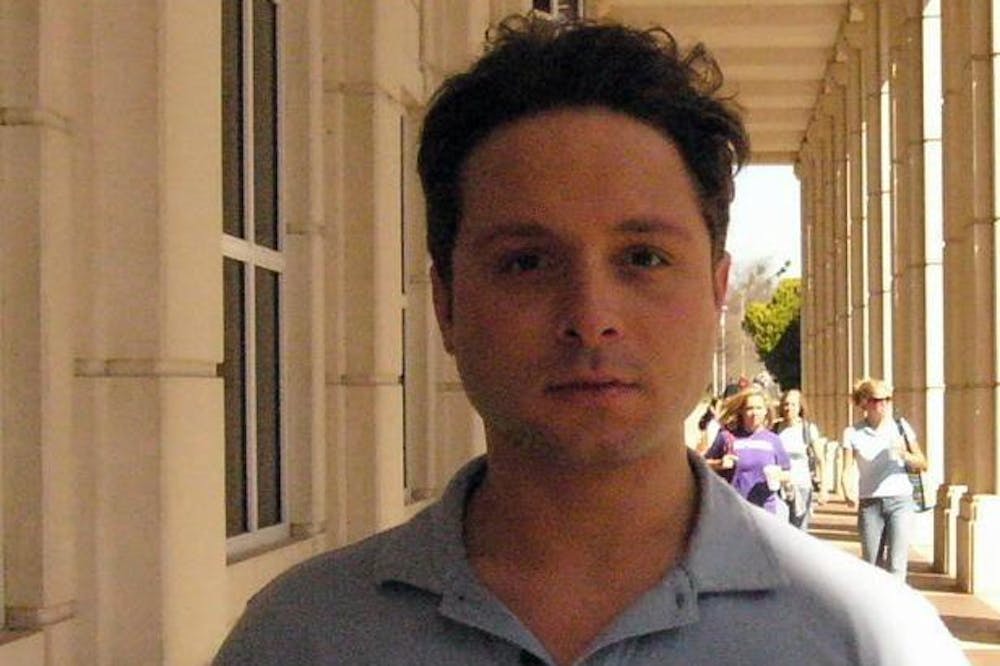Simpson said Pizzolatto’s icy confidence carried over to the classroom, where he made sure to teach the conventions of storytelling the way he strongly believed they should be taught.
“He knows his mind very well,” Simpson said.
The visiting professor position at UNC gives writers a lighter teaching load in order to allow them time to work on their creative endeavors.
Pizzolatto was working on his first novel at the time, a story about two brothers living outside New Orleans in the wake of Hurricane Katrina. Unhappy with the novel as it was about to be published, Pizzolatto pulled it at the last minute.
“It was probably a long short story at best,” he said.
After his year at UNC, he spent two years at the University of Chicago as a visiting professor before landing a tenure-track position at DePauw University.
“The decision was motivated plainly by the need to make a living,” Pizzolatto said. “I didn’t have the means or the ability to make a living writing, no contacts in any industries, and I was lucky to get the visiting job at UNC.”
Tom Chiarella, a professor at DePauw and a writer for Esquire Magazine, said Pizzolatto was a big hire for the liberal arts school an hour outside Indianapolis.
“I think people were excited about the hire, remained excited and were even excited for him when he left,” Chiarella said.
Pizzolatto left the school for Hollywood in the summer of 2010 after his debut novel, “Galveston” — which he wrote in the aftermath of pulling his original book — was warmly received by critics. The New York Times review called it an “incandescent fever dream of low-rent, unbearable beauty.”
“Nic used to disappear for a couple days at a time into his house and come out having written a screenplay or a teleplay, pilot, spec script,” Chiarella said. “He was wildly fast and incredibly imaginative.”
But his time in academia ended abruptly — he had been scheduled to teach that fall — and he’s had harsh words for it in a number of interviews.
To get the day's news and headlines in your inbox each morning, sign up for our email newsletters.
A story in the Los Angeles Times quoted him as saying, “I’d want to bring a flamethrower to faculty meetings,” and “the preciousness of academics and their fragile personalities would not be tolerated in any other business in the known universe.”
Joe Heithaus, a DePauw English professor, said Pizzolatto chafed at the non-teaching parts of being a professor.
“Things were and are personal for Nic, and it made him an intense teacher but not necessarily a great person to be around,” Heithaus said in an email. “But he, rightly, recognized that this was not what he was made for, and he moved onto Hollywood.”
Pizzolatto said he never intended to spend his career as a professor.
“I liked working with students, but the bureaucracy and politics never interested me,” he said. “I was a waiter longer than I was a teacher, and I’ve made a living as a writer and producer longer than I was a teacher.”
Simpson, the UNC professor, said he was not surprised when he learned Pizzolatto had left teaching, but moving to Hollywood was still a big risk.
“You can imagine how many houses of cards there are in order to be successful there,” he said.
Chiarella said he believes Pizzolatto’s successes, literary and in Hollywood, are a testament to his storytelling ability.
“I wish he had been more gracious, but I don’t know that he’s obligated to do that,” he said. “He did his job here, and he’s obviously done his job out there.”
Chiarella said it was clear that Pizzolatto knew he wanted more than the life of a professor, and he had the confidence to head west.
“I think he left there with his decks clear, and he was ready to go,” he said.
state@dailytarheel.com



